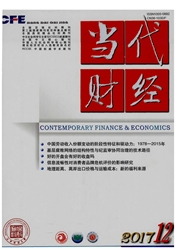

 中文摘要:
中文摘要:
央行是否应该针对房地产价格制定货币政策进行调控,一直是学者们关注的焦点,但研究结果仍存在分歧。基于2000-2010年我国季度经济数据,对比检验了融入房地产价格的泰勒规则与标准泰勒规则对我国制定货币政策调控宏观经济的适用性。实证结果表明,依据标准泰勒规则所制定的利率政策,可以降低央行损失函数值,提高利率政策有效性。这一结果意味着,在房地产价格波动不影响物价稳定和经济增长的情况下,央行不应针对房地产价格进行调控。也就是说,央行需考虑房地产价格波动与通货膨胀和产出之间的相关关系,判断其对政策目标的潜在影响,制定利率政策对宏观经济进行调控。
 英文摘要:
英文摘要:
Whether the central bank should regulate the formulation of monetary policy against the housing price has been the focus of the researchers,but no consensus has been reached yet.Based on China's quarterly economic data from 2000 to 2010,this paper performs a comparative test of the applicability of Taylor rule and the standard Taylor rule that is blended in the housing price to the formulation of China's monetary policy to regulate macro-economy.The empirical results show that the interest rate policy formulated according to the standard Taylor rule can lower the value of the central bank's loss function and raise the effectiveness of interest rate policy.This result indicates that under the circumstance of the fluctuation of housing prices not affecting the stability of commodity prices and economic growth,the central bank should not regulate the housing price.In other words,before the central bank is going to perform regulation on the macro-economy by formulating the interest rate policy,it should consider the correlation between the fluctuation of housing prices and inflation and output and judge its potential influence on the policy targets.
 同期刊论文项目
同期刊论文项目
 同项目期刊论文
同项目期刊论文
 期刊信息
期刊信息
